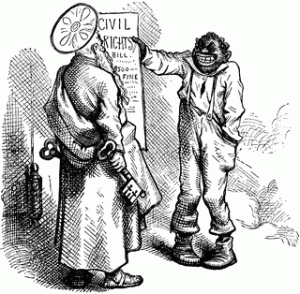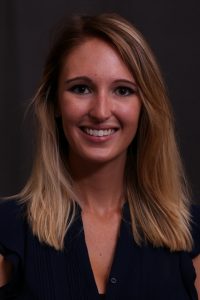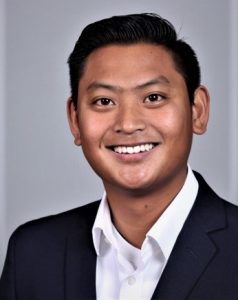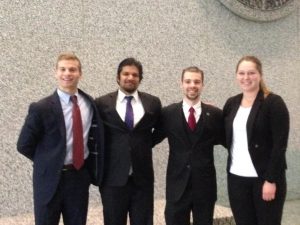The Mirror of Racial Tyranny in The Civil Rights Cases

On the 135th Anniversary of the Supreme Court’s opinion in The Civil Rights Cases, it is worth reflecting on how that opinion — which came after Reconstruction but before Jim Crow—reflects the tensions at play today concerning how constitutional law can, through unrelenting formalism and a preference towards denying the power of the history of slavery and the salience of race, contributes to enduring white supremacy.
This week marks the 135th anniversary of the U.S. Supreme Court’s opinion in The Civil Rights Cases, 109 U.S. 3 (1883). While to some this is a mere historical footnote, the decision is worth remembering because it reflects the tensions at play today concerning how constitutional law can, through unrelenting formalism and a preference towards denying the salience of race, contributes to enduring structural oppression. The reasoning in The Civil Rights Cases is an object study in how to maintain white supremacy—and a mirror to our society today.
The opinion overturned the Civil Rights Act of 1875. It sought to protect recently freed African-American slaves from discrimination in the use of “inns, public conveyances on land or water, theaters, and other places of public amusement.” In striking down this nineteenth-century public accommodations law, thus allowing private businesses to deny services to African Americans because of their race, Justice Joseph P. Bradley, speaking for the 8-1 Supreme Court majority, made three arguments.



